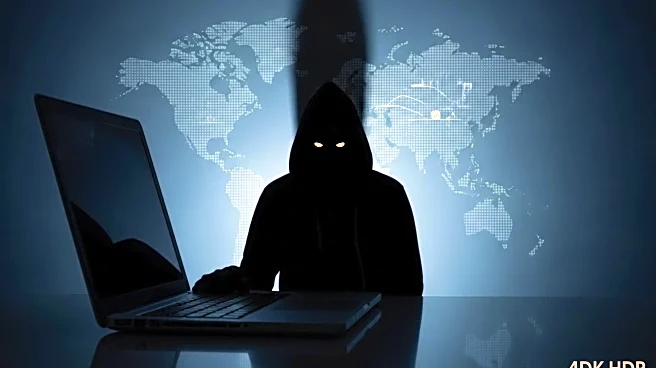What's Happening?
Two 17-year-old boys have been arrested in the Netherlands on suspicion of aiding pro-Russian hackers. The Dutch authorities announced the arrests, stating that the teenagers were allegedly approached by hackers via Telegram, a messaging app favored by cybercriminals. One of the boys was reportedly seen near Europol and Eurojust headquarters, as well as the Canadian embassy, carrying a Wi-Fi sniffer, a device used to map Wi-Fi networks and intercept data. Prosecutors have confirmed the arrests, citing suspicions of 'government-sponsored interference.' One of the teens is under home bail with an ankle monitor, while the other remains in custody. The latter was arrested while doing homework, and investigators seized electronic equipment from his home. The boy's father described him as a computer-savvy gamer with a fascination for hacking. Similar incidents have been reported in Germany and Ukraine, where Russian hackers allegedly recruited teenagers for minor vandalism against official buildings or filming government infrastructure.
Why It's Important?
The arrests highlight the ongoing threat of cyber espionage and the recruitment of young individuals by state-sponsored hackers. This incident underscores the vulnerabilities in cybersecurity, particularly concerning the involvement of minors in cybercrime. The use of teenagers in such activities raises concerns about the ease with which hackers can manipulate young, tech-savvy individuals. It also points to the broader issue of cyber warfare and the tactics employed by nation-states to gather intelligence or disrupt operations in other countries. The involvement of minors in these activities could lead to increased scrutiny and efforts to bolster cybersecurity measures, especially around sensitive government and international agency locations.
What's Next?
The arrested teens are expected to face a hearing within two weeks, which could provide further insights into the extent of their involvement and the methods used by the hackers to recruit them. Authorities may increase surveillance and security measures around key locations to prevent similar incidents. Additionally, there could be a push for educational programs aimed at young people to raise awareness about the legal and ethical implications of cyber activities. The case may also prompt international cooperation to address the recruitment of minors in cyber espionage and enhance cybersecurity protocols.
Beyond the Headlines
This incident raises ethical questions about the recruitment of minors in cyber espionage and the responsibility of governments to protect young individuals from exploitation. It also highlights the cultural fascination with hacking among youth, which can be exploited by malicious actors. Long-term, this could lead to changes in how cybersecurity education is approached, emphasizing ethical hacking and the importance of cybersecurity careers that contribute positively to society.









